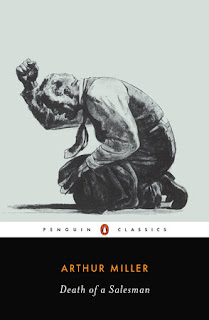I'm jumping on another blogging bandwagon hosted by Should be Reading, which looks promising. Anyone can play along! Just do the following:
--Grab your current read
--Open to a random page
--share two “teaser” sentences from somewhere on that page
Be sure NOT TO INCLUDE SPOILERS! (Make sure that what you share doesn’t give too much away! You don’t want to ruin the book for others!)
--Share the title and author, too, so that other TT participants can add the book to their TBR lists if they like your teasers!
My teaser from Willa Cather's My Antonia:
"I loved the spirit that could not carry out the sentence -- the error from the surveyed lines, the clemency of the soft earth roads along which the home-coming wagons rattled after sunset. Never a tired driver passed the wooden cross, I am sure, without wishing well to the sleeper" (94).
My earlier ambivalence towards the novel has slightly subsided but I am still waiting for Cather to deliver something in the narrative that is profoundly meaningful or memorable. It pains me to say this, but considering the 'American classic" status of My Antonia, I'm not particularly convinced as of yet since the story is relatively dull. I still have about 150 pages left so hopefully Cather can redeem herself as the narrative progresses.































